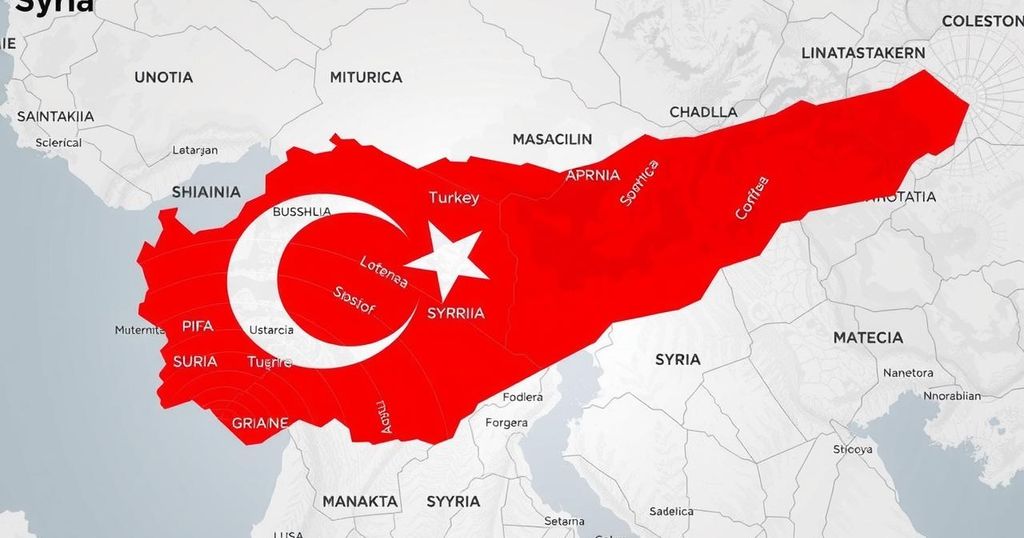The Myth of Turkey’s Victory in Syria

Turkey has not yet secured a true win in Syria despite claims of victory following Assad’s regime change. The involvement of Turkish-backed militias raises questions about Ankara’s dominant role in Damascus. RT and Western powers are establishing their own relations within the shifting landscape. Concurrently, the Kurdish question poses further challenges to Turkey’s ambitions, highlighting the need for cautious analysis of claims of success in this volatile environment.
Turkey’s assertion of victory in Syria following Bashar al-Assad’s regime change appears premature, as it is yet unclear whether Turkey has truly won in this complex geopolitical landscape. Turkish-backed militia groups, such as Hayat Tahrir al-Sham (HTS) and the Syrian National Army, played a significant role in facilitating this regime change, raising hopes for Ankara’s influence in the reconstruction process. However, President Recep Tayyip Erdogan faces substantial challenges in cementing Turkey’s position as the predominant external power in a post-Assad Syria.
Despite early claims of victory, the reality on the ground indicates a different narrative. The Turkish operation in Aleppo, initially intended to compel Assad towards negotiation, transformed into an unexpected shift in power dynamics when the Syrian military faltered. HTS’s growing autonomy following this change complicates Turkey’s narrative of control. Furthermore, other global powers such as the United States and several European nations are now establishing contacts with HTS and the Syrian leadership, creating an environment where Turkey’s influence may not be as dominant as previously thought.
Erdogan’s government also faces the intricate issue of Kurdish nationalism, especially in regards to the Syrian Kurdish forces, the People’s Protection Units (YPG). Turkish authorities hope to leverage the post-Assad power structure to combat Kurdish autonomy, yet the YPG’s readiness to resist presents a daunting challenge. Erdogan’s expectations for collaboration with the new Syrian government regarding the YPG reflect a recognition of the limitations of Turkish power in a newly configured Damascus.
The narrative surrounding Turkey’s victory in Syria risks oversimplifying the situation, potentially leading to misguided policies based on unfounded assumptions. Policymakers must remain vigilant regarding the evolving geopolitical chessboard and the emerging relationships between regional powers and the new Syrian leadership. Turkey undoubtedly possesses considerable resources, but its past missteps highlight the complexities it must navigate to truly claim victory. In conclusion, while Turkey remains a significant player in Syrian affairs, any declarations of victory are, at present, unwarranted.
The dynamics of power in Syria have shifted significantly since the outbreak of conflict in 2011, ultimately culminating in the fall of the Assad regime in December. Various stakeholders, foreign powers, and militant groups have been involved in influencing the outcome of the Civil War, with Turkey emerging as a proponent of anti-Assad forces. Regional aspirations to establish dominance and the intricate balance of alliances amid local ethnic and political tensions have complicated the ongoing situation, particularly regarding the Kurdish issue and the role of foreign actors in the region.
Turkey’s perceived victory in Syria is an overstatement that ignores the complexities embedded within the current geopolitical landscape. While Ankara has positioned itself through strategic alliances with local militias, its long-term influence is uncertain, as other regional powers and groups gain agency in Damascus. Policymakers must recognize the intricate realities at play, eschewing premature celebrations of a victory that may not fully materialize in practice.
Original Source: foreignpolicy.com








